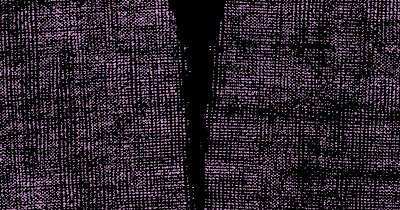 |
| Nuclear fusion is again being offered as the solution to human energy needs. |
By Andrew Porter
On February 9, 2022, scientists working in an English village near Oxford announced that in December they were able to generate a few successful sustained seconds of nuclear fusion. An article for CNN by Danya Gainor and Angela Dewan declared that:
‘A giant donut-shaped machine just proved a near-limitless clean power source is possible’.The energy machine generated a record-breaking 59 megajoules for over five seconds. Heat ten times hotter than the center of the sun – as high as 150 million degrees Celsius. The process generates tremendous pressure. And then the magnets overheat.
This kind of development is almost universally hailed as an advance. It promises to one day meet energy demand that burgeons with increasing human population. Such energy may be able to utilize the deuterium and tritium in seawater to power houses and businesses – as the crisis of climate change applies heat and pressure of its own. But I want to suggest that finding a source for more energy should not be the world's focus, as reasonable as it sounds. That there may instead be better uses of energy possible for us.
One person may argue: ‘We live in a contemporary world with vast energy needs and we have to develop the technology to address problems’. This the voice of what is considered ‘realism’. But as Shira Ovide, a New York Times writer, says: ‘Climate change and other deep-seated problems are hard to confront, and it’s tempting to distract ourselves by hoping that technology can save the day… But technology isn’t magic and there are no quick fixes.’ Another person may contend that the kind of worldview that got us into this mess will not get us out. So it is worth asking what really is beneficial, not just short term but long term.
The ‘glitzy’ new advance in nuclar fusion seems, on the surface, to be of benefit. But our high-energy-use ways are unsustainable and damaging. It seems to me that the task for communities, nations, and humankind in general is, in this time of planetary pressure and the retooling of mindsets, to generate human ecology, so we might live within natural parameters and carrying capacities. This is the opposite of finding new ‘resources to exploit’ for untenable practices and assumptions.
Now you may ask, ‘Well, if it's cheap and renewable, why not embrace nuclear fusion?’ Behind this question is the hope that there will be no reckoning, that we will not have to mend our planet-damaging ways. But our energy needs to be mental, cultural, and philosophical. Peter Sutoris, anthropologist of development and the environment, and author of Educating for the Anthropocene, says:
‘We must face up to the harsh reality that for all its achievements, our civilisation is deeply flawed. It will take a reimagination of who we are to truly solve this crisis’.
Who can seriously argue that it is not time to craft a new human way of being on Earth? This ‘new human way’ I imagine as much simpler, low-tech, and integral with other life forms.
The likelihood is very strong that people at all levels will reject a shift away from grabbing more energy. Rising sea levels will submerge huge swathes of coastline because of the industrialised world's aversion to ecological ways of life. But thorough-going, Earth-friendly ideals, were they chosen, could be the crucial spur to enact positive change in societies and provide an aim for what's accepted, embraced, and funded. The ‘tokamak’ fusion machine near Oxford cannot provide the needed energy. What is most pertinent for our time is inferably moral energy – along with philosophical clarity – to steer us all away from human excesses and towards an attunement to natural limits. This is to suggest that the fusion that’s optimally generated is internal.
That’s the real enterprise – the energy use – worthy of our savvy.
